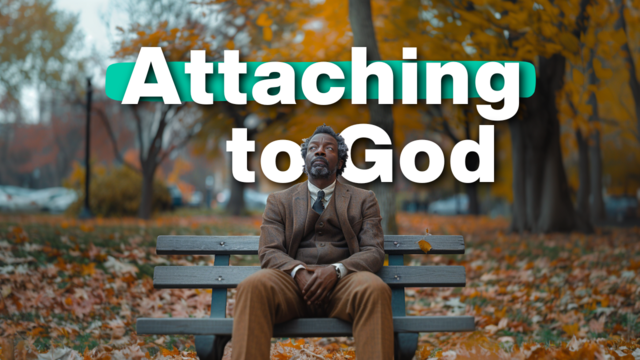Key takeaways
- Storms in life are inevitable, but God can help us maintain a positive outlook in difficult times.
- There are three things we can do to keep our mornings bright through the unpredictability of these storms: check our outlook, look for wisdom, and call a friend.
While I was a student at the University of Florida, it was not uncommon to wake up to clear blue skies and head out to class, only to be caught in a downpour by early afternoon.
These rainstorms were predictably unpredictable; we knew they would come, but we didn’t get to know exactly when. They were inconvenient, capable of doing damage, and generally disruptive. When caught off-guard by a downpour, I would feel surprised and exasperated by my “bad luck” even though I knew these storms were a normal part of life in Florida.
Similarly, life brings storms that are predictably unpredictable. The storms of life are the trials and sorrows that come from a variety of sources. We know they will come, but we don’t know exactly when. We don’t know how intense they will be or how long they will last. Like all storms, they are inconvenient, capable of doing damage, and disruptive to our lives. And no matter how many storms we face, we often get surprised and frustrated by the next one that comes along.
God is a safe place of shelter in the storms of life. The book of Proverbs tells us that listening to God’s wisdom will help us travel through any storm unafraid.
But the one who always listens to me will live undisturbed in a heavenly peace. Free from fear, confident and courageous, that one will rest unafraid and sheltered from the storms of life.
Proverbs 1:33 TPT
The book of Proverbs also tells us that the storms of life are unavoidable. In Proverbs 10:25, Solomon says “When the storms of life come …” not “if” the storms of life come:
When the storms of life come, the wicked are whirled away, but the godly have a lasting foundation.
Proverbs 10:25 NLT
Jesus and his followers faced storms too. In the midst of one (literal) storm, Jesus called his disciples to respond to even the fiercest winds with faith rather than fear.
As evening came, Jesus said to his disciples, “Let’s cross to the other side of the lake.” [36] So they took Jesus in the boat and started out, leaving the crowds behind (although other boats followed). [37] But soon a fierce storm came up. High waves were breaking into the boat, and it began to fill with water. [38] Jesus was sleeping at the back of the boat with his head on a cushion. The disciples woke him up, shouting, “Teacher, don’t you care that we’re going to drown?” [39] When Jesus woke up, he rebuked the wind and said to the waves, “Silence! Be still!” Suddenly the wind stopped, and there was a great calm. [40] Then he asked them, “Why are you afraid? Do you still have no faith?”
Mark 4:35-40 NLT
Storms are inevitable, and they can impact our faith when they come. They can obscure our view of God and make us think he doesn’t care about what happens to us. Much like clouds block the sun, storms can make life seem gray and gloomy.
Now faith is confidence in what we hope for and assurance about what we do not see.
Hebrews 11:1 NIV
Faith provides the confidence that what we desire, what we want to see happen, will happen for us—no matter how stormy life looks right now. Faith is what helps us stay sunny on cloudy days, and we can make a few decisions each morning that will help us start each day with a bright outlook instead of a dim one.
Check your outlook
Listen, your eye, your outlook, the way you see is your lamp. If your way of seeing is functioning well, then your whole life will be enlightened. But if your way of seeing is darkened, then your life will be a dark, dark place. [35] So be careful, people, because your light may be malfunctioning. [36] If your outlook is good, then your whole life will be bright, with no shadowy corners, as when a radiant lamp brightens your home.
Luke 11:34-36 Voice
When we look at our lives, we often focus on certain outcomes to define whether or not things are going well. We measure success by achieving things or getting what we want.
Unfortunately, this way of thinking can be problematic to our faith because outcomes are influenced by many circumstances outside of our control. Our relationships, children’s lives, financial security, careers, and health are all influenced by factors we cannot control. Fixing our eyes on a certain outcome opens us up to anxiety, disappointment, disillusionment, bitterness, and frustration.
What we can control is our outlook. We can fix our eyes on our walk with God, character development, heart condition, compassion, and faith. As we focus on any one of these areas, we will see rich and satisfying opportunities for growth and encouragement. No matter what’s happening around us, our outlook will be a faithful one because we will be looking for ways we can grow.
As Luke 11:36 shows us, our whole life will be bright when our outlook is functioning well. We can make each morning bright by reflecting on the outcomes we might be chasing and choosing to have a faithful outlook instead.
Pause and Reflect:
- What possible outcomes am I focused on? How are they impacting my faith?
- What convictions could I focus on to make a difference in my outlook?
Look for wisdom
Happy [blessed, considered fortunate, to be admired] is the man who finds [skillful and godly] wisdom, And the man who gains understanding and insight [learning from God’s word and life’s experiences],
Proverbs 3:13 AMP
This verse teaches us that wisdom will make us happy, and we find wisdom as we learn from life’s experiences. Storms are experiences; they are not pleasant experiences, but important experiences because they can give us understanding and insight. As we apply that insight in ways that help us grow, we become wise.
For example, life’s experiences have taught me that when I’m tired I’m more likely to make emotional decisions. I have done this many times, and each time it has led to unhappy consequences. But on the bright side, every emotional reaction provided me with valuable knowledge I wouldn’t have otherwise had.
How can I apply this insight to help me grow and thrive? Now I know to make adjustments in my schedule when I’m tired so that I avoid the decisions or actions that come with being controlled by my emotions. This is applying my knowledge, and this is wisdom.
The wisdom we gain from life’s experiences helps not only us, but also the people around us. When I’m applying the knowledge I’ve gained from my own experiences, I can recognize when people close to me are tired and advise them to rest instead of letting their emotions guide them. I can also look beyond my friends’ emotional reactions and help them understand what might be going on with them emotionally.
We can stay sunny on cloudy days when we look for wisdom in everything we go through, knowing that the lessons we learn can be life-changing for us and our loved ones.
Pause and reflect:
- When I reflect on some of the storms I have experienced, what lessons could be gleaned even from the challenges they created?
- How could these lessons help me or a loved one grow and thrive?
Call a friend
The heartfelt counsel of a friend is as sweet as perfume and incense.
Proverbs 27:9 NLT
When storms are hitting, we need the encouragement of a friend to keep us going. Unfortunately, I spend a great deal of time muscling through storms alone, denying I’m in a storm, or simply letting the storm knock me out.
When we are in a storm, or we feel the clouds growing around us, we don’t usually have the most reliable perspective about our circumstances. A friend can provide counsel and perspective in ways we are not able to do for ourselves. As the Proverbs 27 verse above teaches us, a friend’s counsel can change the mood from sour to sweet. The longer we stay isolated, the more our faith can be worn down.
By yourself you’re unprotected. With a friend you can face the worst. Can you round up a third? A three-stranded rope isn’t easily snapped.
Ecclesiastes 4:12 MSG
When we’re by ourselves, we’re unprotected. This means we’re defenseless, exposed, helpless and vulnerable. This isn’t a good position to be in when a storm comes our way. Being alone will make us feel insecure and make our challenges seem even bigger than they are. A friend can change the narrative and provide the support that builds our strength to help us face whatever storms are coming. No matter what we’re going through, we are stronger together.
Two can accomplish more than twice as much as one, for the results can be much better. If one falls, the other pulls him up; but if a man falls when he is alone, he’s in trouble.
Ecclesiastes 4:9-10 TLB
Pause and Reflect:
- Who is my go-to person when I find myself facing the storms of life?
- How quick am I to recognize my need to call a friend?
- How hard is it to admit I need help or perspective?
Take action
- If you typically handle your storms on your own, make a decision to talk to some friends about what you are learning, and tell them that you want to be able to call them next time.
Final thoughts
Though the fig tree does not bud and there are no grapes on the vines, though the olive crop fails and the fields produce no food, though there are no sheep in the pen and no cattle in the stalls, [18] yet I will rejoice in the LORD, I will be joyful in God my Savior. [19] The Sovereign LORD is my strength; he makes my feet like the feet of a deer, he enables me to tread on the heights. For the director of music. On my stringed instruments.
Habakkuk 3:17-19 NIV
Habakkuk was a prophet to Judah when God was disciplining his people for their unfaithfulness. Habakkuk witnessed many stressful storms in that period. He wrestled with whether or not God was in control, and whether or not God was being fair. These are similar thoughts we often entertain when the storms of life hit us.
Habakkuk knew that the immediate future was going to be rough, but ultimately God’s mercy and love would prevail. So Habakkuk played the long game. He was able to acknowledge the current difficulties, even listing them out specifically, but ultimately rejoice and find confidence in who God is.
Habakkuk, in his own words, was communicating the familiar saying, “I still may not know what the future holds, but I know who holds my future.” He concluded that God’s love and strength would ultimately win the day and would carry him through the rough moments and ultimately in the end, he’d be left standing on top with God.
We can make any day bright by remembering Habakkuk’s words and making them our own. No matter what is happening in our lives today, God’s love and mercy will ultimately prevail. With faith in this, our outlook will be bright.
Explore more:
Stone Eleazer studied at the University of Florida and is an editor for Deep Spirituality.
Stone Eleazer studied at the University of Florida and is an editor for Deep Spirituality.





